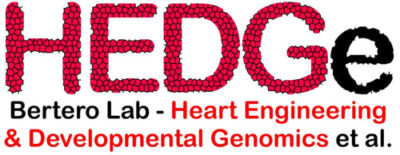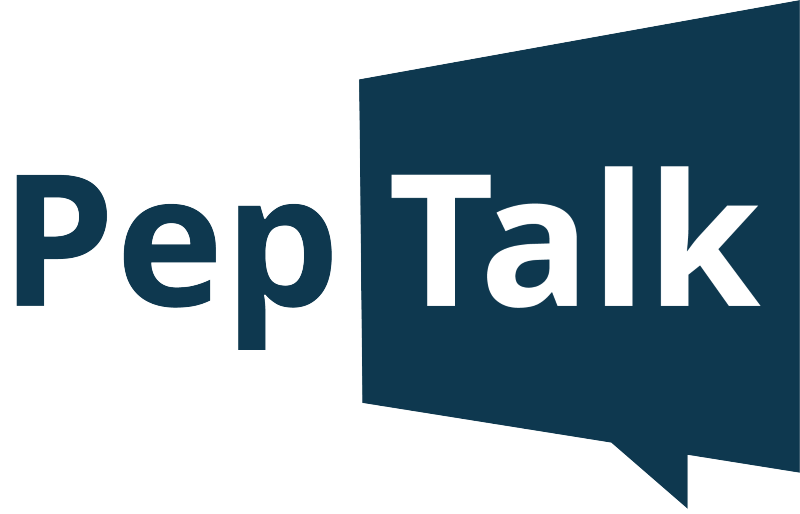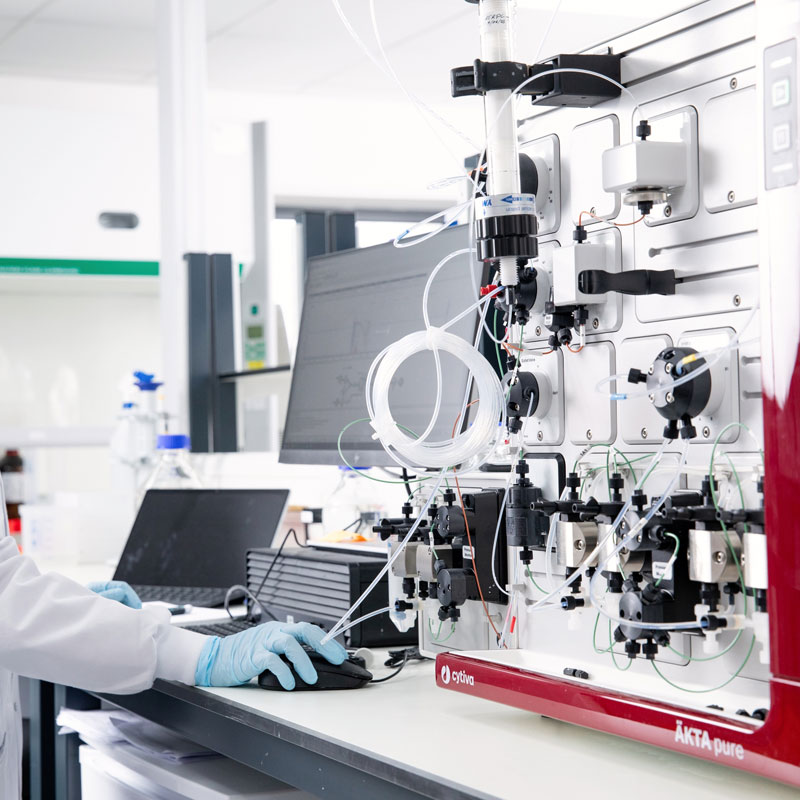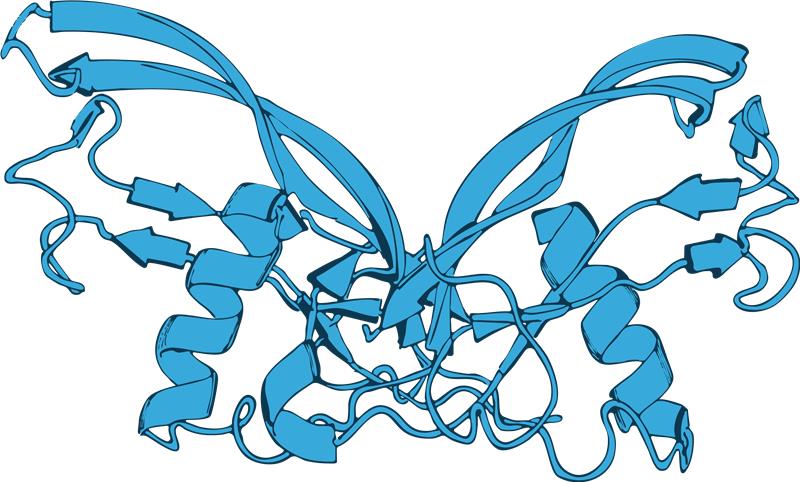Pep Talk
September 2024
Qkine collaboration with the Bertero Lab, Heart Engineering and Developmental Genomics et al. (HEDGe), University of Turin, Italy
‘Refined home-brew media for cost-effective, weekend-free hiPSC culture and genetic engineering’
This paper focusses on the optimization of media for the maintenance of human induced pluripotent stem cells (hiPSCs) to allow cost-effective, practical, and reproducible culture of hiPSCs. High quality, reproducible but cost-effective culture is especially crucial for large-scale expansion of hiPSCs for cell therapy, which should be made accessible to many patients regardless of their socioeconomic background.
During the optimization of media for weekend-free hiPSC culture the Qkine tag-free FGF2-G3 variants were found to be too potent at the recommended concentration of 40 ng/ml. In addition, FGF2-G3 145 aa was found to be more potent than the 154 aa version, which further reduced the cost of FGF2 in the media, in addition to the cost reduction made by using the weekend-free media change protocol.

NEWS
Qkine are excited to announce our products will now be available on the Product Hub Marketplace of Scientist.com!
Qkine, a leading manufacturer of high purity bioactive proteins, is pleased to announce its sales distribution agreement with Scientist.com Product Hub Marketplace. The AI driven digital research platform Scientist.com will promote and distribute our high purity, guaranteed bioactivity, animal origin-free proteins.
The collaboration between Qkine and Scientist.com will empower stem cell scientists across the continent by providing improved access to innovative growth factors and cytokines from Qkine.
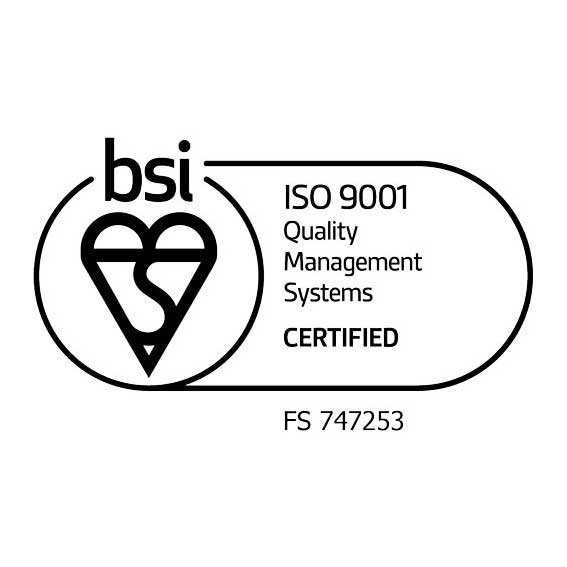
Qkine recertified to ISO 9001:2015
Qkine are pleased to announce that we have successfully been recertified with the international standard ISO 9001:2015 in a recent audit. This standard shows our dedication to providing quality products, customer service, and technical support to our customers.
In 2021, Qkine committed to implementing an ISO 9001:2015 compliant quality management system encompassing its entire R&D, manufacturing, and operations functions. Embedding this internationally recognized standard demonstrated a commitment to consistently meet and exceed customer expectations and applicable statutory and regulatory requirements. UKAS accredited BSI, respected globally, was selected to certify the quality management system giving enhanced confidence in the assessment of best practice.
Read more
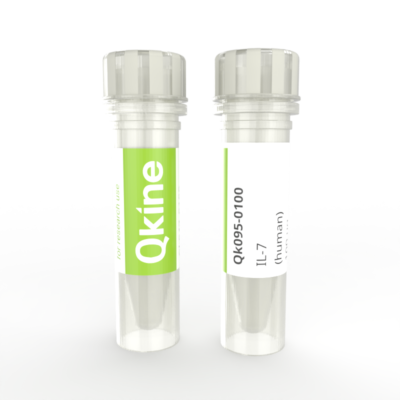
NEW PRODUCT HIGHLIGHT
Recombinant human IL-7 protein (Qk095)
Interleukin-7 (IL-7) is a vital cytokine essential for immune system regulation, particularly in the development and maintenance of T cells, playing a crucial role in both adaptive and innate immune responses. Recombinant human IL-7 stimulates the development of lymphoid progenitor cells.
Qkine has optimised the IL-7 manufacture process to produce a highly bioactive protein with excellent lot-to-lot consistency for enhanced experimental reproducibility.
All our growth factors are manufactured within a stringent quality framework, ensuring high-quality proteins that maintain robust, reproducible, and physiologically relevant stem cell and organoid cultures that adhere to our Nine-point Quality Commitment.
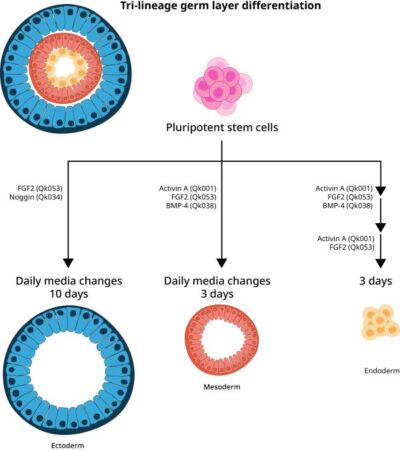
APPLICATION NOTES
Differentiation of induced pluripotent stem cells (iPSCs) into ectoderm, mesoderm and endoderm lineages
Human induced pluripotent stem cells (iPSCs) are an in vitro model that represent a pivotal breakthrough in regenerative medicine and cellular biology. Reprogramming iPSCs grants these cells the ability to differentiate into any cell type of the three germ layers: ectoderm, mesoderm, and endoderm. This provides unparalleled potential for disease modeling, drug discovery, and cell-based therapies, all without the ethical concerns associated with using embryonic stem cells.
Ectoderm
Differentiating iPSCs into ectoderm lineage is particularly significant, given the ectoderm’s role in generating the central and peripheral nervous systems, sensory organs, and skin. Differentiating iPSCs into neuroectodermal cells, followed by further differentiating into ectodermal lineages, is critical for studying neurodevelopmental processes, modeling neurological disorders, and developing potential therapies for conditions impacting the nervous system and skin.
In this application note, we outline the method for differentiating iPSCs into neuroectoderm cells using media containing members of our recombinant FGF-2 family, such Qkine FGF2-G3 (Qk053), together with noggin (Qk034).
Mesoderm
Differentiating iPSCs into mesoderm linage of cells is particularly significant, given the mesoderm’s role in generating a wide range of vital tissues and organs, including the heart, blood, muscles, and bones. This provides unparalleled potential for disease modeling, drug discovery, and cell-based therapies.
In this application note, we outline the method for differentiating iPSCs into mesoderm cells using media containing members of our recombinant FGF-2 family, such as Qkine FGF2-G3 (Qk053), along with both activin A (Qk001), and BMP-4 (Qk038) growth factors.
Endoderm
Differentiating iPSCs into endodermal linage cells is particularly important due to the critical roles endodermal derivatives play in human physiology. Understanding the differentiation process of iPSCs into endodermal cells offers promise for developing treatments for a variety of conditions, including liver diseases, diabetes, and cystic fibrosis, as well as for generating organoids for research and transplantation purposes.
In this application note, we outline the method for differentiating iPSCs into definitive endoderm cells using media containing members of our recombinant FGF-2 family, such Qkine FGF2-G3 (Qk053), along with both activin A (Qk001), and BMP-4 (Qk038) growth factors.
Human/bovine/porcine TGF-β1 PLUS™ protein
TGF-β1 is an essential growth factor in many embryonic and induced pluripotent stem cell maintenance media, including the commonly used E8, StemPro, and mTeSR media.
Qkine TGF-β1 PLUS™ (Qk010) is animal origin-free, carrier protein-free and tag-free to ensure high and consistent bioactivity.
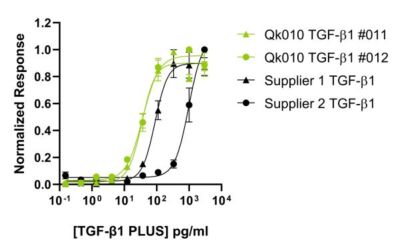
Qkine animal origin-free TGF-β1 PLUS is more bioactive than mammalian expressed alternatives
Human TGF-β3 protein
TGF-β3 is involved in regulating cell survival, proliferation and differentiation. TGF-β3 is used in human pluripotent stem cell maintenance media.
Qkine TGF-β3 (Qk054) is animal origin-free, carrier protein-free and tag-free to ensure high and consistent bioactivity.
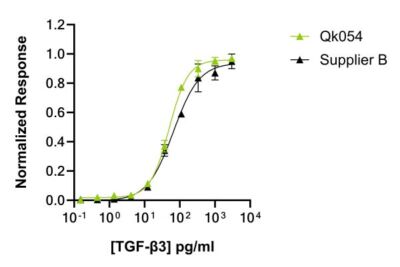
Qkine transforming growth factor beta-3 (TGF-β3) is as biologically active as a comparable alternative supplier protein
UPCOMING EVENTS
- CMS24 | September 12-13, 2024 | Silicon Valley, California
- In vitro cell culture models: moving towards animal free | September 17, 2024 | Manchester, UK
- CARMA Conference 2024 | September 17, 2024 | Bath, UK
- Europe Supplier Diversity and Inclusion Conference 2024 | September 23025, 2024 | Paris, France
Sign up to hear about the latest in growth factor innovation, new products and cool stem cell science
We respect your time! You will receive update emails only when there is something important to say. Our privacy policy is available here. You can unsubscribe at any time.
